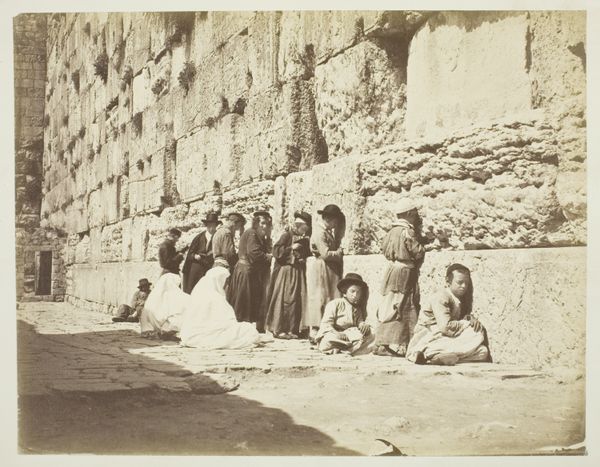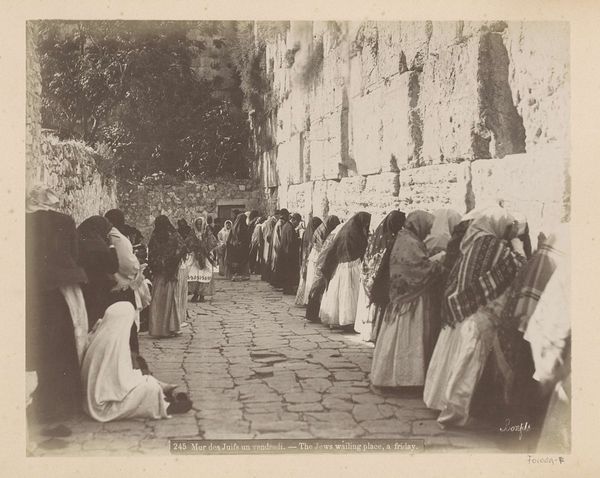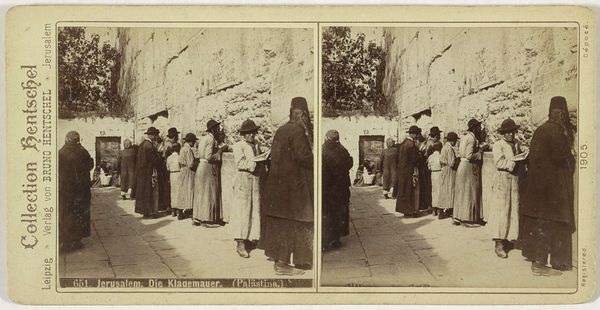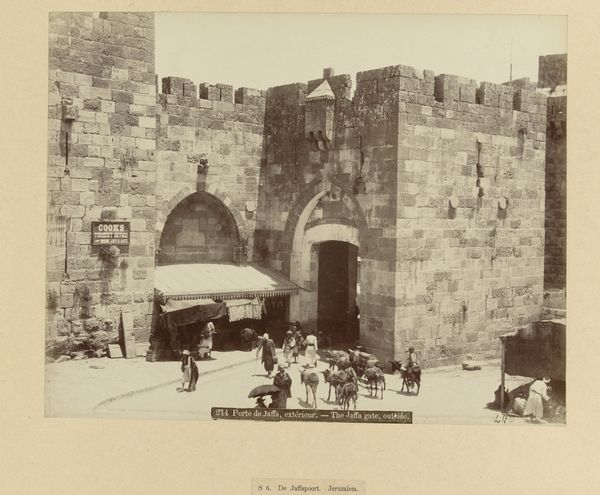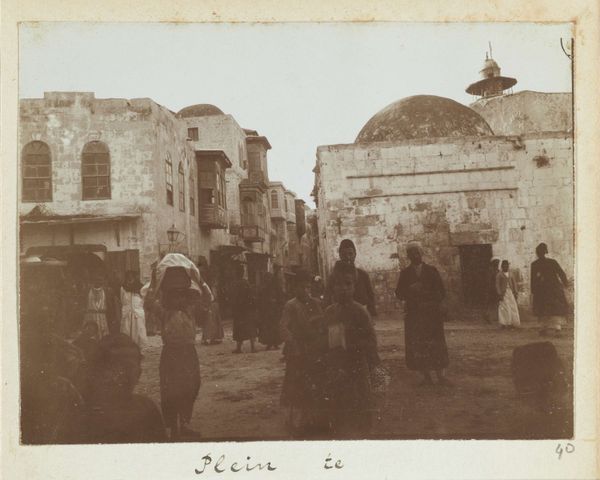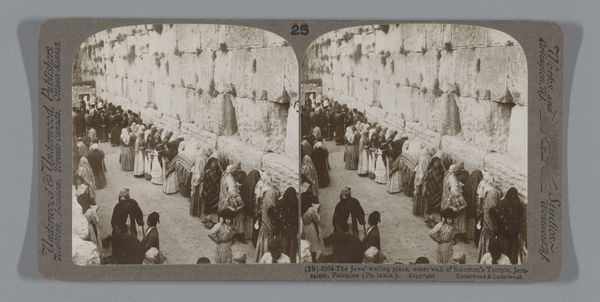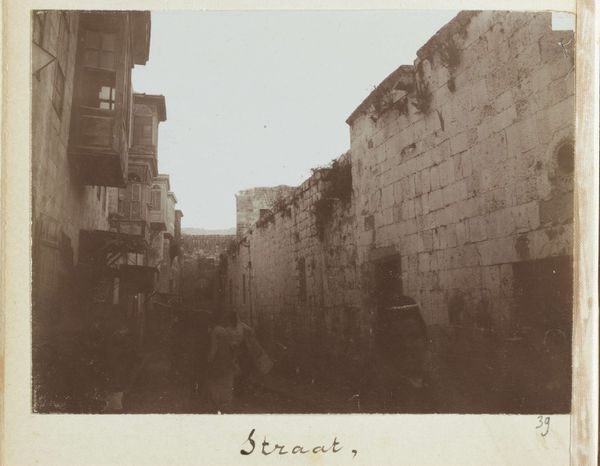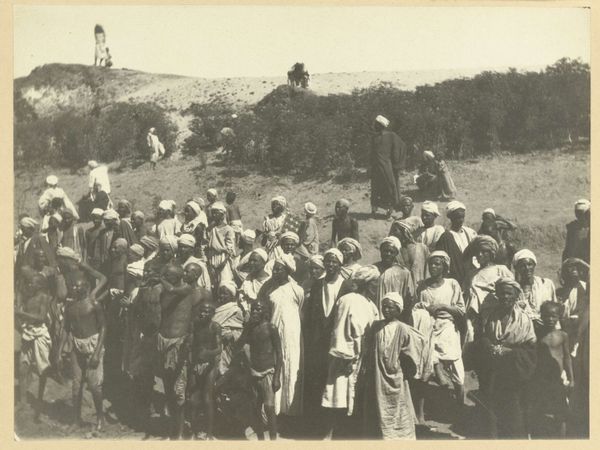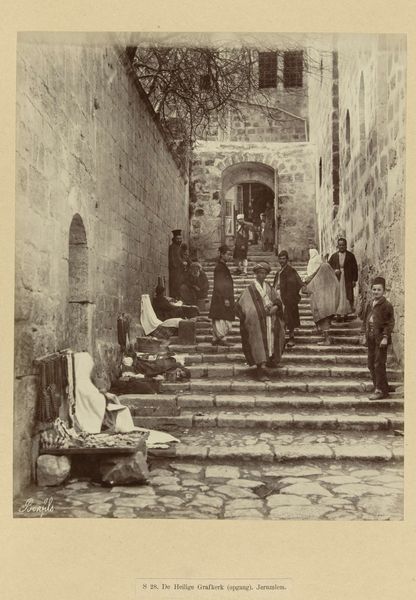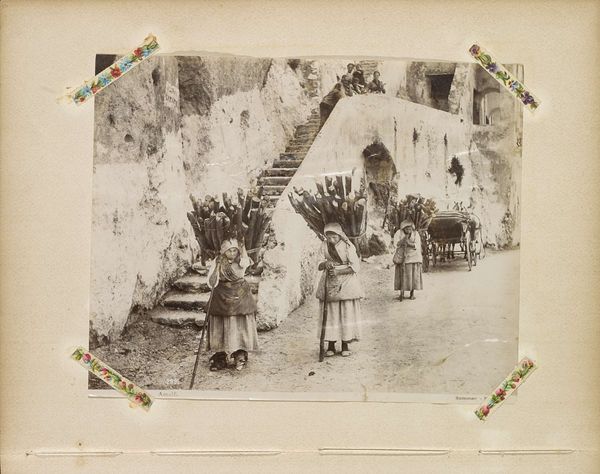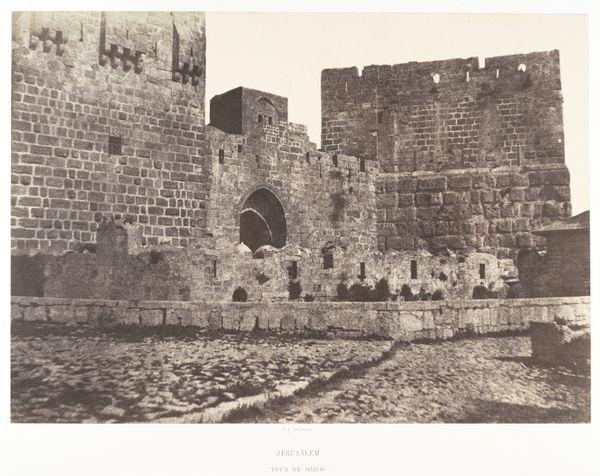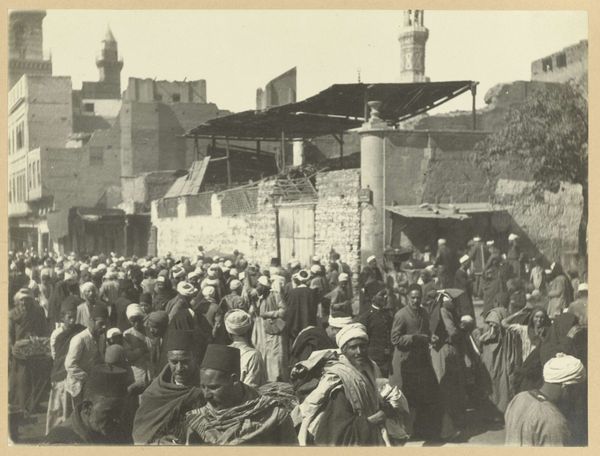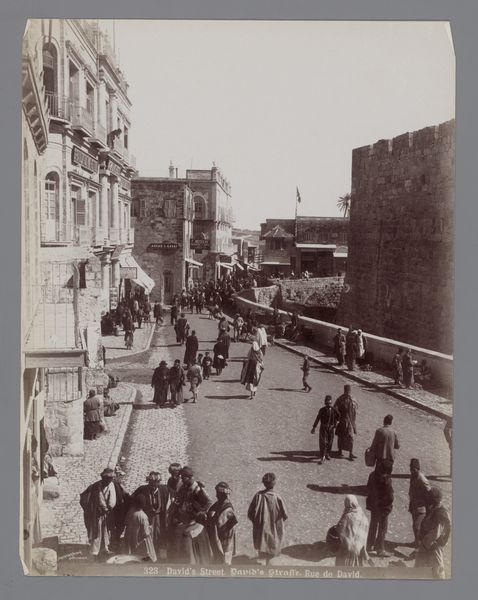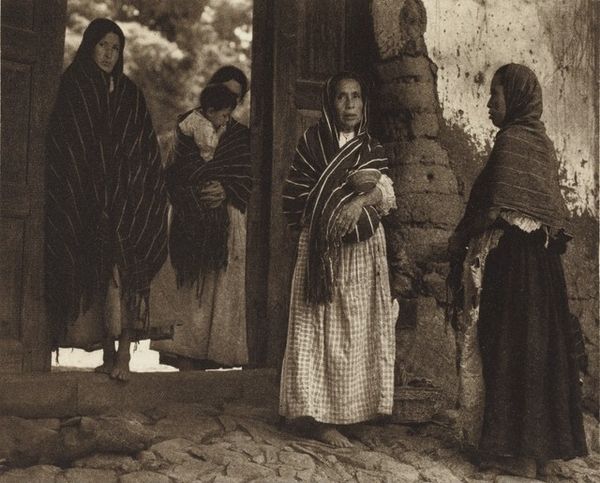
photography, albumen-print
#
16_19th-century
#
archive photography
#
photography
#
historical photography
#
orientalism
#
19th century
#
islamic-art
#
genre-painting
#
albumen-print
#
realism
Dimensions: height 216 mm, width 275 mm, height 469 mm, width 558 mm
Copyright: Rijks Museum: Open Domain
Editor: This is "Joden bij de Klaagmuur, Jeruzalem," or "Jews at the Wailing Wall, Jerusalem," an albumen print by C. & G. Zangaki, sometime between 1870 and 1895. The sepia tones and the rough texture of the wall are very striking. What stands out to you? Curator: For me, the interest lies in understanding how the very act of creating this image transforms reality. Think about the labor involved: the mining of materials for the photographic process, the journey to Jerusalem, the establishment of a studio, the staging, and the very specific viewpoint. It frames these people, their devotion, for consumption, packaging, and perhaps even altering the site itself into a backdrop. Editor: So, you're saying the photo itself is almost an imposition on the scene? That the making of it, and how it would be sold, alters what we're seeing? Curator: Precisely. We're not simply witnessing a moment of piety. We're looking at a commodity manufactured for a Western audience, capitalizing on Orientalist tropes. Who owned the land? Who controlled access to these holy spaces and materials? And what does it say about the market for such images at this time? How was labour distributed in its creation? Editor: That shifts my understanding entirely! It's less about a captured moment, and more about the socio-economic system making it. Curator: Yes! Consider how the albumen print itself - the material and chemical processes – contribute to its meaning. This particular medium helped produce images intended for mass distribution and consumption. Editor: So, we’re not just seeing a photograph, but a physical artifact of a complex historical moment. Thanks so much. Curator: And we need to keep questioning what material relations, exchanges, and systems the existence of this artwork implies. Very important.
Comments
No comments
Be the first to comment and join the conversation on the ultimate creative platform.
